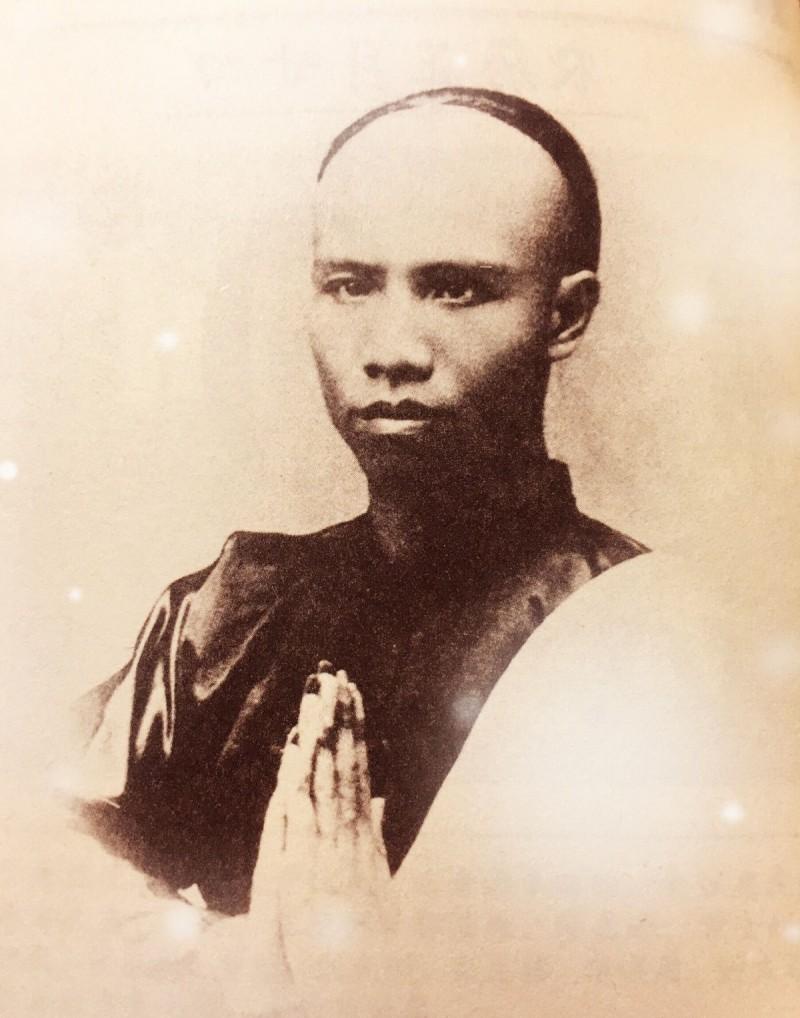
"All countries have changed their laws from shedding blood, and today China has not heard of anyone who has shed blood because of changes in the law, and the reason why this country is not prosperous." Yes, please start with the same heir! This is Tan Sitong's last words a hundred years ago, and it epitomizes the determination of the restoration faction led by Tan Sitong to dare to fight. In fact, Tan Sitong could have escaped in advance, but he chose to stay.
On the sixth day of august in the 24th year of Guangxu (September 21, 1898), Empress Dowager Cixi, who had been staying in the Summer Palace, suddenly returned to the Forbidden City and launched the "Wushu Coup". During the incident, first the Guangxu Emperor was imprisoned, and then Empress Dowager Cixi ordered people to arrest the reformists, and the prominent representatives were the "Six Gentlemen of Wushu", namely Tan Sitong, Kang Guangren, Lin Xu, Yang Shenxiu, Yang Rui, and Liu Guangdi.
Among the six gentlemen, Tan Sitong was the most famous, but his fate was also the most tragic. In order to achieve her goal of killing one hundred people, Empress Dowager Cixi decided to behead Tan Sitong in the most brutal way. When executing death row inmates in the Qing Dynasty, the knives used by executioners would be very different, and the larger the crime, the blunter the knife.
In Tan Sitong's "Witness to Tan Si Tong's Righteousness" written by Tan Si and his master Hu Zhiting, posterity saw the whole process of Tan Sitong's beheading, "The knife used to kill officials in the former Qing Dynasty is different from the knife that kills civilians, and the bigger the official, the more blunt the knife. This is not called beheading, it is called sawing head, which is dozens of times more painful than beheading. And for this tragic situation that hurt into the bone marrow, the fifth tortured Mr. Tan has always been indifferent, cutting more than thirty knives before he lost his breath. ”
After Tan Si and the others were beheaded, the whole country fell into a panic, and no one dared to speak for the six gentlemen. The author consulted the materials at that time and found that the English newspaper "Zi Lin Xi Bao" in the Shanghai Concession gave high praise to the six gentlemen, "They all have the will to sacrifice their lives to become benevolent." We often express discouragement and despair toward China, but there is no reason for any country to despair of producing martyrs like this. ”
In the process of the beheading of Tan Si and others, there was a scene that they may not have thought of, and there were a large number of onlookers around. In addition to watching the hilarity, these people also have a purpose, that is, to take a steamed bun and prepare to eat it dipped in blood. In addition, on the road where Tan Si and others were escorted to the execution ground, the ordinary people along the way actually threw rotten eggs, rotten vegetable leaves, etc. at them, and scolded them for "betraying the country."
Tan Sitong stayed in Beijing with the belief that he must die, but he did not want others, especially his relatives, to be affected. Tan Sitong left a letter in the handwriting of tan Jixun, who imitated his father, to write a letter severing the relationship between father and son, and when he informed Liang Qichao and others to leave Beijing, he said: "There is no dead, there is no hope for the future; there is no living person, there is no way to recruit a future." ”
For a long time, posterity has greatly criticized Tan Si and his father Tan Jixun for not saving him when he sees death. Tan Jixun was the governor of Hubei at that time, and he could be regarded as a feudal official, and he really did not come to the rescue. Tan Jixun hoped to stay out of the matter and thus retain his official position. After Tan Sitong's death, Tan Jixun wrote a copy of the elegy to his son: "The rumors spread all over the nine continents of all countries, which are nothing more than scolding; ZhaoXue is unknown in thousands of lifetimes." ”
Although Tan Jixun tried desperately to keep his official position, he was eventually implicated by his son, and with the impeachment of Yang Shenxiu, the inspector of Shandong Province, "that is, The Governor of Hubei Tan Jixun was old and pedantic, although there was no one who could not carry out the New Deal." These shall not be dismissed separately, or they shall be dismissed separately, or they shall be dismissed separately", Tan Jixun was dismissed from his post.
Reference: "Peng shu change law"